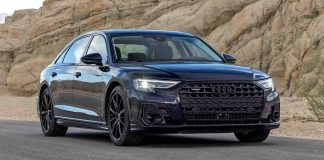Here’s the latest reader rant, along with my reply!
Ron writes: Great commentary on turbos. it seems that larger displacement with greater torque combined with higher (lower numerical) gearing would result in equivalent MPG without the 100,000+ RPM impeller spinning all the time to provide the boost. Recently had insurance company try to increase rates 36%. Excuse was because are more expensive to repair due to increased electronics, etc. Wish I would have kept my K-car 🙂
My reply: Agreed, Ron – it would! By way of example, I have an ancient muscle car with a 7.5 liter (455 cube) V8, with a carburetor and no computer and 3.90 rear gears that is capable of high teens – not far from the mileage (22.8 MPG) delivered by the ’19 Subaru Ascent I recently wrote about, which has a 2.4 liter engine with all the “tech” advances – and a turbo.
The Subaru’s four has to work harder to make its power.
So, why are the car companies resorting to these micro-turbo engines, if they don’t really save much gas?
Because they do – on paper. They are more “efficient” than a V6 of similar output on the EPA’s testing cycle, which is the basis for both the advertised “city/highway” numbers touted on the window sticker as well as the numbers used to calculate that car company’s Corporate Average Fuel Economy (CAFE) numbers, which are the basis for assigning fines for “gas guzzling.”
So, they design and build cars to do well on the tests.
But out in the real world, your mileage will vary.
On the insurance thing: Yes, and I expect this to become general, soon. The question is whether they will also jack up the rates of owners of older cars to wealth-shift the burden of paying for the repair costs of the over-teched new cars.
. . .
Got a question about cars – or anything else? Click on the “ask Eric” link and send ’em in!
If you like what you’ve found here, please consider supporting EPautos.
We depend on you to keep the wheels turning!
Our donate button is here.
If you prefer not to use PayPal, our mailing address is:
EPautos
721 Hummingbird Lane SE
Copper Hill, VA 24079
PS: EPautos magnets are free to those who send in $20 or more. My latest eBook is also available for your favorite price – free! Click here. If you find it useful, consider contributing a couple of bucks! 












So here’s a thought: Uncle’s test loop is all done on a rolling road dynamometer, correct? If so it should be possible for a local speed shop who might have a device to program it to run the government’s MPG test loop on their system. I’d like to see how older vehicles compare to the modern versions. I know my old Subaru XT got about 45 on the highway, but that was back with 55MPH speed limits. How it would do today I cannot say. Eric’s anecdote about his Trans-Am might be a lot more effective when compared on a standard measurement tool.
The 85 vette that I had a few years ago had a 2.79 gear ratio, or something in that vicinity. With easy cruising on country roads I would get 27 – 28 mpg. That was early OBD 1, so a little bit more complicated than the Trans Am, but not much. My son just gave me an offer I couldn’t refuse on his 2011 Scion TC. 2.4 liter 4 cylinder, smaller and lighter than the vette, light years ahead in technology, electronics,etc, and it gets 27 mpg. And obviously, even though 85 Corvettes weren’t the best ones ever made, it would still blow the doors off the TC. And somehow they call it progress.